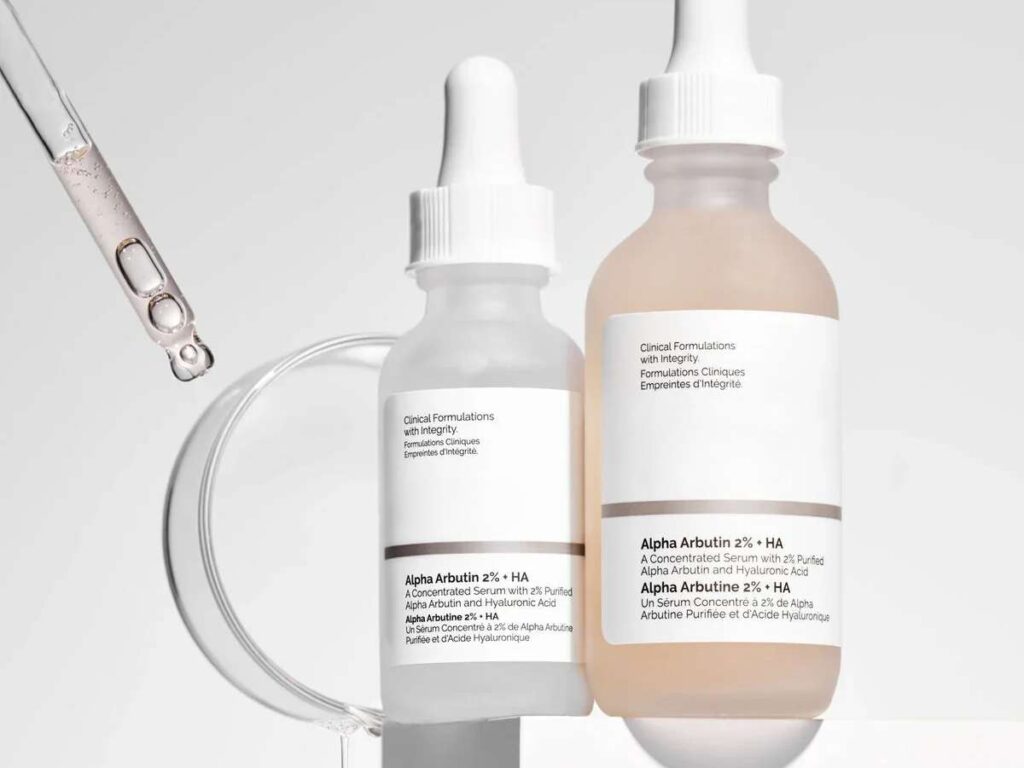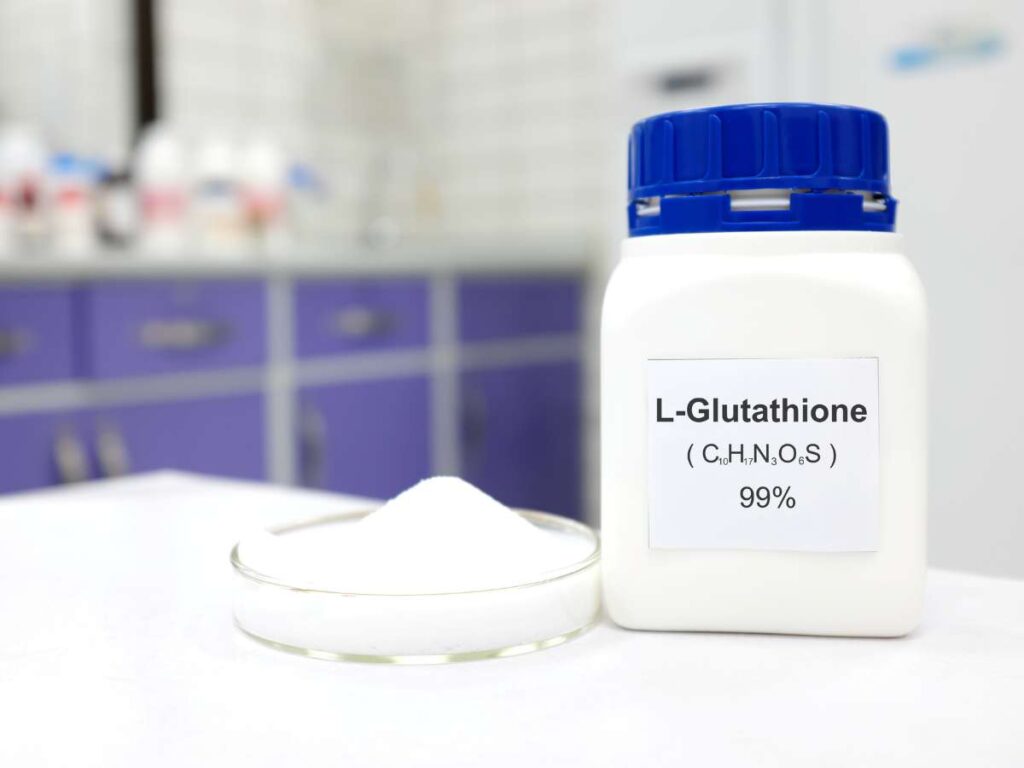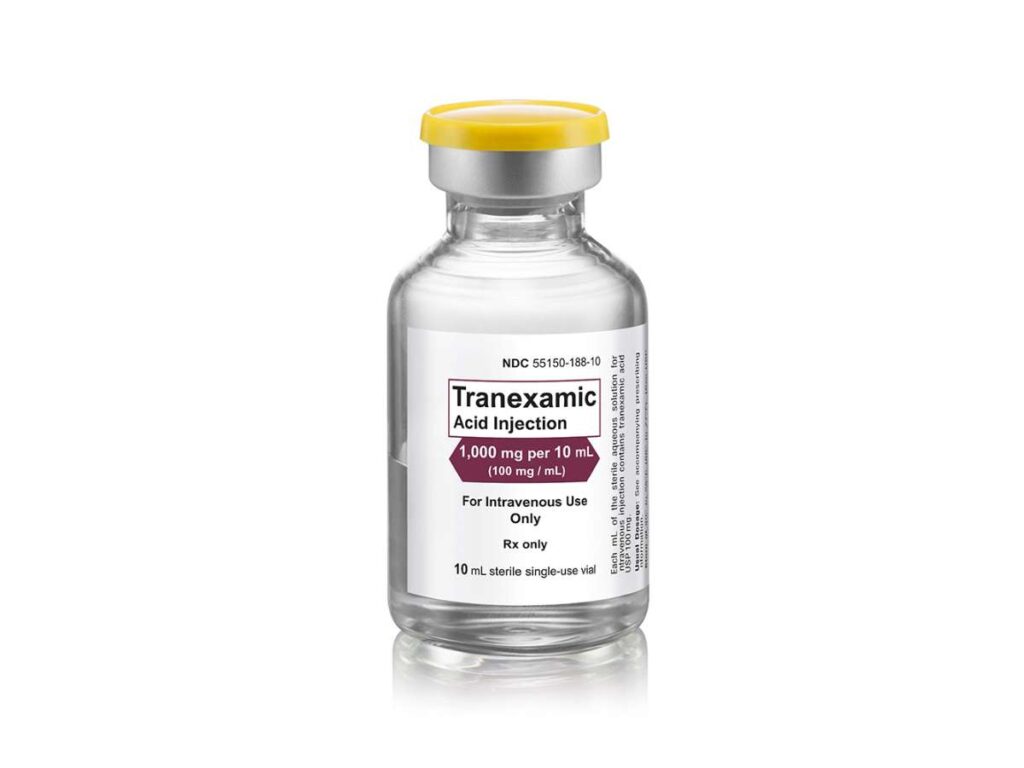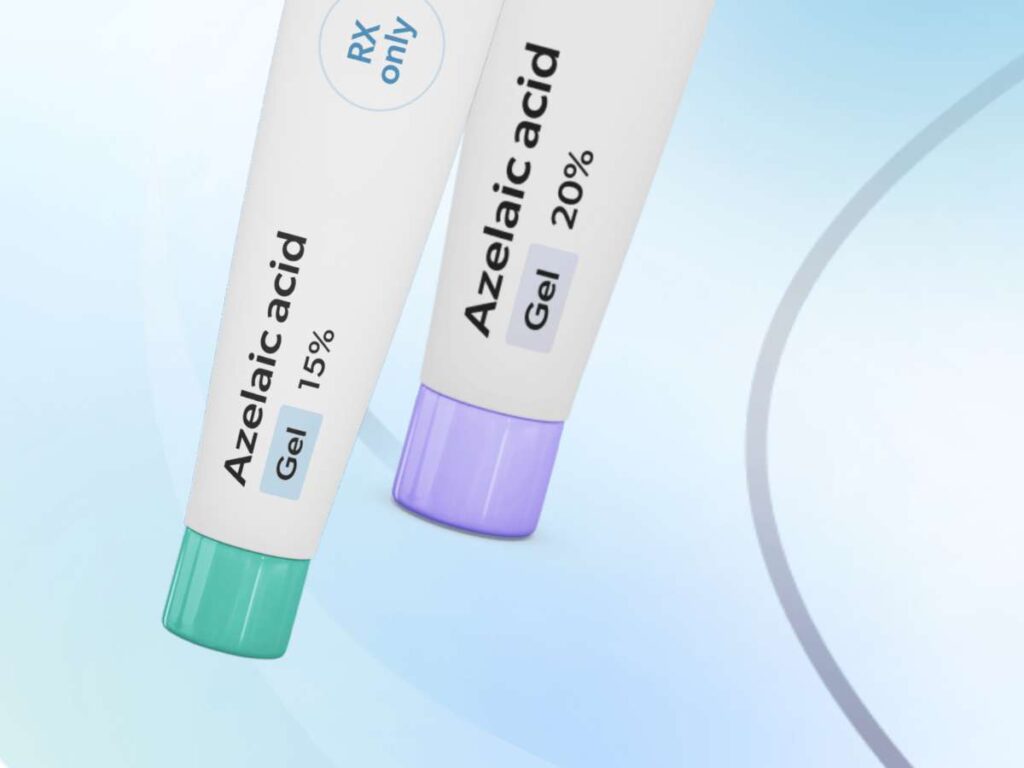Top 10 Skin Whitening Ingredients You Should Know

Author: Tommy Tang | Founder at Ridgepole
Hi, I'm Tommy Tang, here to share my expertise in skincare with you.
Table of Contents
I remember working with a skincare brand that struggled with whitening formulations. They used what they thought were “effective” ingredients, but the results were slow, and customers weren’t impressed.
Their competitors, however, were selling out. The difference? Ingredient selection.
Choosing the right whitening agents can make or break a skincare product. You need ingredients that deliver visible, safe, and lasting results.
With years of hands-on experience in skincare manufacturing, we know what works and what doesn’t. This list is built on real-world efficacy, not marketing buzzwords.
Here, we break down 10 of the most effective skin whitening ingredients, how they work, and where they fit in formulations. This is the knowledge you need to create high-performance whitening products.
So, let’s dive in!
1. Niacinamide (Vitamin B3)
Niacinamide, also known as Vitamin B3, is a powerful ingredient in skin whitening products. It works by reducing melanin transfer to skin cells, leading to a brighter and more even complexion.
Benefits for Skin Whitening
- Fades Dark Spots – Niacinamide helps lighten hyperpigmentation, including sunspots and acne scars.
- Evens Skin Tone – It reduces blotchiness and redness, giving the skin a smooth, uniform look.
- Prevents Melanin Transfer – By blocking melanin movement, it slows down new pigmentation from forming.
- Supports Skin Barrier – Strengthens the skin, keeping it hydrated and less prone to irritation.
Common Applications
- Serums & Essences – Fast-absorbing and suitable for daily use.
- Face Creams & Moisturizers – Offers long-term brightening while keeping skin hydrated.
- Spot Treatments – Targets specific dark spots and uneven patches.
- Toners – Helps prep the skin while gradually lightening it.
Niacinamide is a versatile, well-tolerated ingredient that works for all skin types. It pairs well with other whitening agents like Vitamin C and arbutin, making it a staple in skin brightening formulations.
2. Alpha Arbutin
Alpha Arbutin is a gentle yet powerful skin whitening ingredient. It is derived from the bearberry plant and works by inhibiting tyrosinase, the enzyme responsible for melanin production. This leads to a lighter, more even skin tone without irritation.
Benefits for Skin Whitening
- Reduces Hyperpigmentation – Effectively fades dark spots, melasma, and acne scars.
- Gentle Yet Effective – Unlike harsh whitening agents, Alpha Arbutin is safe for sensitive skin.
- Provides Even Skin Tone – Helps correct discoloration and prevents future pigmentation.
- Safe for Long-Term Use – Does not cause side effects like hydroquinone.
Common Applications
- Serums & Ampoules – High-concentration formulas for targeted brightening.
- Creams & Lotions – Provides all-day hydration while lightening skin.
- Sheet Masks – Delivers an instant glow and hydration boost.
- Toners & Essences – Helps maintain an even complexion over time.
Alpha Arbutin is most effective when used with Vitamin C and Niacinamide. It is a go-to choice for B2B brands looking for a safe, long-term skin brightening solution.

3. Kojic Acid
Kojic Acid is a natural skin-whitening ingredient derived from fungi during fermentation. It works by inhibiting tyrosinase, the enzyme responsible for melanin production. This helps fade dark spots, acne scars, and hyperpigmentation, leading to a brighter and more even complexion.
Benefits for Skin Whitening
- Reduces Dark Spots – Effectively lightens sun damage, melasma, and acne scars.
- Provides Quick Results – Delivers visible skin brightening with consistent use.
- Mild Exfoliation – Helps remove dead skin cells, revealing fresher skin.
- Antioxidant Protection – Fights oxidative stress, improving overall skin health.
Common Applications
- Soaps & Cleansers – Popular for daily skin brightening.
- Serums & Creams – Targets deeper pigmentation issues.
- Spot Treatments – Helps fade stubborn dark spots faster.
Kojic Acid is highly effective but may cause mild irritation in sensitive skin. It works best when combined with hydrating and soothing ingredients like hyaluronic acid or aloe vera.

4. Glutathione
Glutathione is a powerful antioxidant naturally produced by the body. In skincare, it works by inhibiting melanin production and converting darker eumelanin to lighter pheomelanin, leading to a visibly brighter complexion. It also helps detoxify the skin and reduce oxidative stress, making it a popular ingredient in whitening formulations.
Benefits for Skin Whitening
- Reduces Melanin Production – Helps lighten skin tone and fade pigmentation.
- Brightens and Evens Skin Tone – Promotes a healthy, radiant complexion.
- Provides Antioxidant Protection – Neutralizes free radicals, preventing premature aging.
- Supports Skin Health – Detoxifies and improves overall skin quality.
Common Applications
- Oral Supplements – Used in capsules and drinks for full-body whitening.
- Serums & Creams – Delivers targeted brightening effects.
- Injectables – Used in clinical treatments for faster results.
Glutathione works best when combined with Vitamin C, which enhances its absorption and effectiveness. It is widely used in both oral and topical skin whitening products for long-term brightening effects.

5. Vitamin C (Ascorbic Acid & Derivatives)
Vitamin C is a well-known skin-brightening ingredient that works by inhibiting melanin production and promoting collagen synthesis. It helps reduce dark spots, even out skin tone, and protect against environmental damage.
Benefits for Skin Whitening
- Reduces Hyperpigmentation – Helps fade dark spots, sun damage, and melasma.
- Evens Skin Tone – Brightens dull skin and enhances radiance.
- Boosts Collagen Production – Improves skin texture and elasticity.
- Fights Free Radicals – Protects against environmental stressors like UV rays and pollution.
Common Applications
- Serums & Ampoules – Fast-absorbing formulas for daily use.
- Moisturizers & Creams – Provides hydration while brightening skin.
- Face Masks & Toners – Helps maintain an even complexion over time.
Vitamin C works best when combined with Niacinamide, Alpha Arbutin, or Glutathione for enhanced whitening effects. It is a key ingredient in skincare formulations due to its effectiveness and skin-rejuvenating properties.

6. Licorice Extract (Glabridin)
Licorice extract is a natural skin-brightening ingredient known for its ability to inhibit tyrosinase, the enzyme responsible for melanin production. It contains glabridin, which helps lighten dark spots and even out skin tone while providing anti-inflammatory benefits.
Benefits for Skin Whitening
- Reduces Dark Spots – Helps fade hyperpigmentation, sunspots, and acne scars.
- Evens Skin Tone – Brightens skin naturally without irritation.
- Calms Inflammation – Soothes redness and irritation, making it ideal for sensitive skin.
- Protects Against UV Damage – Provides mild sun protection and prevents further pigmentation.
Common Applications
- Serums & Creams – Targets uneven skin tone and pigmentation.
- Face Masks & Toners – Enhances overall skin radiance.
- Spot Treatments – Focuses on reducing stubborn dark patches.
Licorice extract is a preferred choice for gentle skin whitening, especially for those with sensitive or reactive skin. It works well when combined with Niacinamide and Alpha Arbutin for a more effective brightening effect.

7. Tranexamic Acid
Tranexamic Acid is a powerful skin-brightening ingredient that works by blocking melanin production at the cellular level. Originally used to treat excessive bleeding, it was later discovered to be highly effective in reducing hyperpigmentation, especially stubborn melasma. Its anti-inflammatory properties also help prevent new dark spots from forming, making it a valuable ingredient in whitening formulations.
Benefits for Skin Whitening
- Reduces Melasma & Stubborn Pigmentation – Targets deep-set discoloration that is difficult to treat.
- Prevents Future Dark Spots – Stops melanin production before it reaches the skin’s surface.
- Soothes Inflammation – Reduces redness and irritation, making it suitable for sensitive skin.
- Enhances Skin Barrier – Strengthens skin while brightening for a healthier appearance.
Common Applications
- Serums & Ampoules – Penetrates deep into the skin for effective pigmentation control.
- Toners & Essences – Provides long-term brightening benefits.
- Spot Treatments – Targets areas of severe discoloration.
Tranexamic Acid is an excellent choice for addressing difficult pigmentation issues, especially melasma. It works well in combination with Vitamin C and peptides for enhanced skin-whitening effects.

8. Azelaic Acid
Azelaic Acid is a multifunctional ingredient that helps brighten skin, reduce pigmentation, and improve overall skin texture. It works by inhibiting tyrosinase, the enzyme responsible for melanin production, which helps lighten dark spots and even out skin tone.
Benefits for Skin Whitening
- Fades Dark Spots – Reduces hyperpigmentation, melasma, and post-inflammatory marks.
- Brightens & Evens Skin Tone – Helps achieve a clearer, more uniform complexion.
- Reduces Acne & Redness – Calms inflammation and prevents breakouts.
- Gentle Yet Effective – Suitable for sensitive and acne-prone skin.
Common Applications
- Serums & Spot Treatments – Targets hyperpigmentation and acne scars.
- Creams & Moisturizers – Provides hydration while improving skin clarity.
- Face Washes & Toners – Helps maintain even skin tone with daily use.
Azelaic Acid is an effective skin-whitening ingredient that also supports skin health. It pairs well with Niacinamide and Tranexamic Acid for enhanced brightening and anti-inflammatory benefits.

9. Mulberry Extract
Mulberry Extract is a natural skin-brightening ingredient derived from the mulberry plant. It works by inhibiting tyrosinase, the enzyme responsible for melanin production, which helps reduce dark spots and even out skin tone. Rich in antioxidants, it also protects the skin from environmental damage and premature aging.
Benefits for Skin Whitening
- Reduces Hyperpigmentation – Helps lighten dark spots, melasma, and sun damage.
- Evens Skin Tone – Provides a natural brightening effect without irritation.
- Rich in Antioxidants – Protects against free radicals and skin aging.
- Gentle & Safe for Sensitive Skin – Ideal for long-term use in skincare formulations.
Common Applications
- Serums & Essences – Helps brighten and nourish the skin.
- Creams & Lotions – Provides hydration while improving skin tone.
- Face Masks & Toners – Enhances skin radiance and clarity.
Mulberry Extract is a great addition to skin whitening products due to its natural and gentle effectiveness. It works well when combined with other brightening agents like Vitamin C and Alpha Arbutin for improved results.

10. Bearberry Extract
Bearberry Extract is a plant-based skin-brightening ingredient that naturally contains arbutin, a compound known for its ability to lighten pigmentation. It works by inhibiting tyrosinase, the enzyme responsible for melanin production, leading to a more even skin tone.
Benefits for Skin Whitening
- Lightens Dark Spots & Hyperpigmentation – Naturally reduces melanin production for a brighter complexion.
- Evens Skin Tone – Helps correct discoloration and sun-induced pigmentation.
- Contains Natural Antioxidants – Protects skin from environmental damage.
- Gentle & Safe for Long-Term Use – Suitable for sensitive skin without harsh side effects.
Common Applications
- Serums & Creams – Helps gradually fade dark spots and pigmentation.
- Lotions & Moisturizers – Provides hydration while improving skin tone.
- Toners & Masks – Enhances skin clarity and radiance over time.
Bearberry Extract is a safe and effective alternative to synthetic brightening agents. It works well when combined with Niacinamide and Vitamin C to enhance its skin-whitening effects.

Conclusion
After working hands-on with countless formulations, I’ve seen firsthand how the right blend of actives can transform a product from ordinary to exceptional.
It’s not just about achieving a lighter skin tone—it’s about creating products that are safe, effective, and a joy to use, whether it’s a serum, cream, or a targeted treatment.
At Ridgepole, we don’t just follow trends; we set them. With decades of experience, a passion for innovation, and a dedication to quality, we’re here to help you bring high-performance skincare products to life.
Ready to develop skincare products that deliver visible, lasting results?
Contact us today—because your next bestseller starts here!
Check Out These Additional Resources
Not quite what you’re looking for? Explore our wider product range for more choices:
Still haven’t found what you’re looking for? Don’t hesitate to contact us. We’re available around the clock to assist you.
Quick Quote
Own Your Private Label Cosmetic Line Is No Longer Difficult Here!





